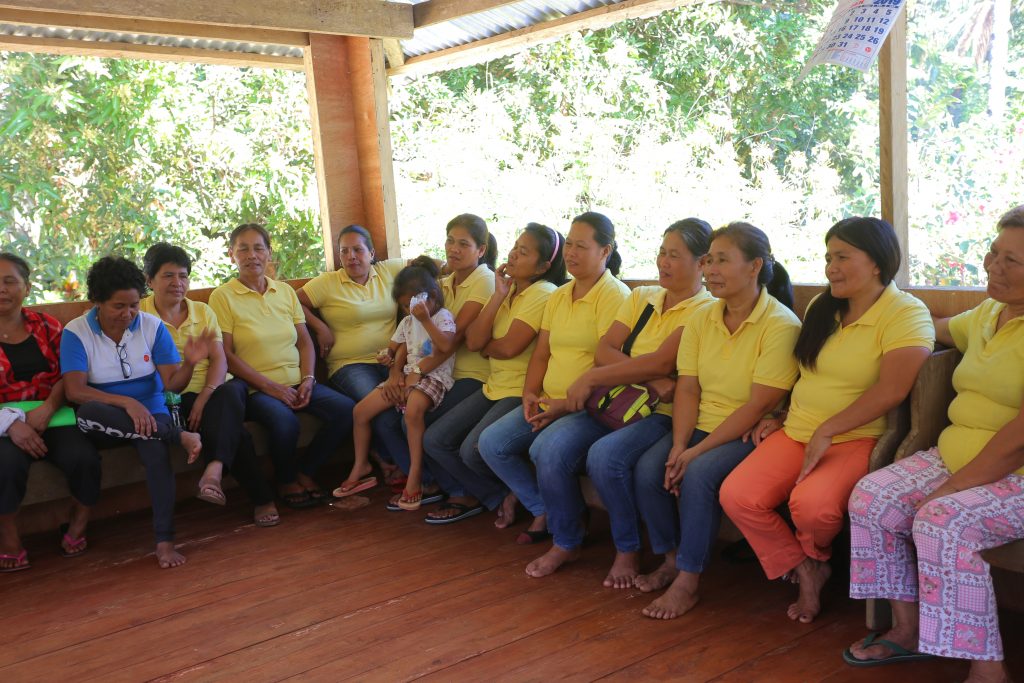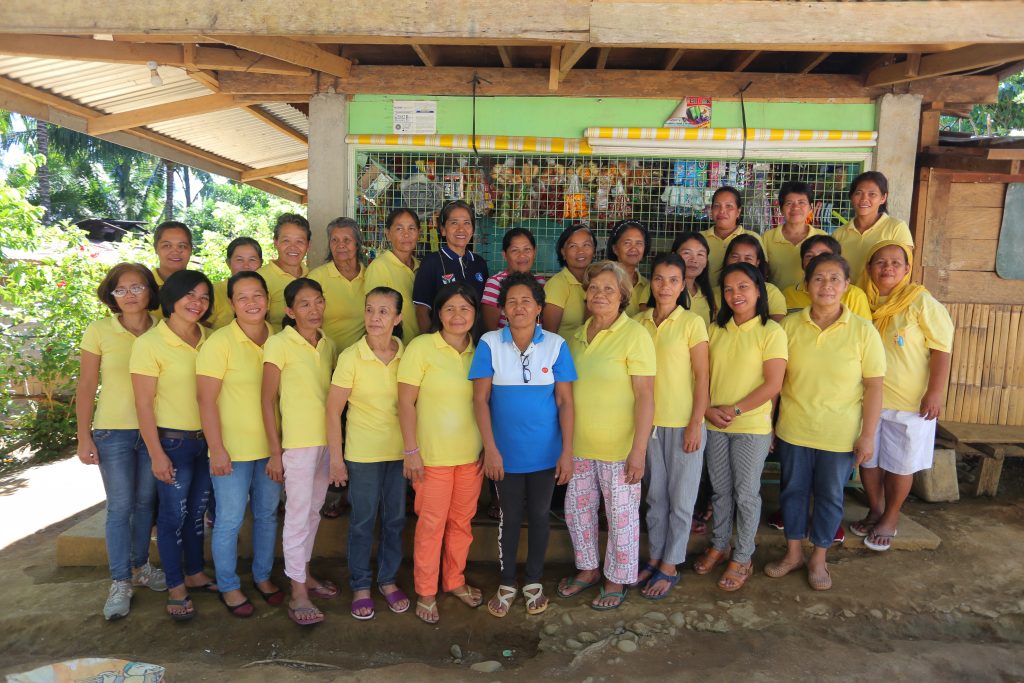In August 2004, KAWOSA (then KASAPI) was organized by a select group of women who saw the financial need for fiesta celebrations and other festivities. To address this need, the group decided to contribute Php300.00 as start-up capital for a micro-lending activity. They charged an interest of 10% per month. To keep track of their micro-lending project, they agreed to meet every last Sunday of the month at the school’s waiting shed. The proceeds (dividends) from the micro-lending activity are distributed every December, during their Christmas party.
In May 2005, KASAPI decided to re-organize the association and change its name to Kasapi Women’s and Savings Association (KAWOSA). Through the Barangay Council, some KAWOSA officers and members were selected to attend the Pre Membership Seminar (PMES) facilitated by Balay Mindanao Foundation, Incorporated (BMFI). KAWOSA benefited from the capability building activities facilitated by Balay Mindanao. Seminars that were conducted include bookkeeping, auditing, laws that protect the rights of women and children, agrarian land reforms, and other laws relevant to the needs of the association.
In June 2005, KAWOSA opened a sari-sari store and a canteen inside an elementary school campus with a capital of Php2,700.00 from the contribution of the twenty-seven (27) members at Php100.00 each. A month after, KAWOSA registered itself in the Department of Labor and Employment (DOLE).

KAWOSA was formalized into an association with a legal personality, having a complete set of officers, written constitution and by-laws, and development plans. The partnership with Balay Mindanaw continued and in September 2005, KAWOSA received livelihood assistance amounting to Php10,000.00 for pig dispersal livelihood project for ten (10) members.
Later, the sari-sari store and the canteen inside the school campus had to be transferred as advised by the new school in-charge. KAWOSA decided to purchase a 100 square meter lot from Mr. & Mrs. Aurelio Camus in the amount of Php 5,000.00, just enough to build a small building strategically located across the school campus. The association continued its hard work in sustaining its economic activities and in 2012 they applied for accreditation with the City Government of Gingoog that paved the way to receiving a Php 340,000.00 livelihood project for corn and swine production from Community Fund And Development (CFAD) through the City Agriculture Office. The CFAD project has continued to date (swine and cattle raising), except for the corn production which was replaced by Falcata.
As an accredited association by the City Government of Gingoog, KAWOSA was invited to participate in the BUB project orientation and workshop. KAWOSA proposed for a consumer store and the project was approved amounting to Php240,000.00, which was funded and implemented through the Department of Social Welfare and Development (DSWD) on December 2014.

The seed capital fund from DSWD was a substantial amount that KAWOSA decided, through a general assembly, to select few members whom they trust and has the skills, capacity, and commitment as the “management team”. The management team is entrusted with the planning, budgeting, and implementation of the project. One of the major decisions that the management team came up was to construct a two story building. The first floor will house the consumer store and kitchen and the upper floor will serve as the meeting hall of the members.
Currently, the association has a consumer store and micro-lending service. They ventured into ginger farming but it did not prosper, so the members replaced it with a vegetable garden in hopes to generate added income and provide members with fresh vegetables. Capital for food and snacks vending is also offered to interested members who want to have additional income, utilizing the associations’ kitchen and space (suitable display area) as the store is located in front of the school. With their diverse source of income, KAWOSA fully paid the livelihood grant to DSWD in February 2017.

The store has undergone renovation which gave it gave added value. The association practiced Christmas as a gift giving month not only to distribute profit shares from the store and micro-lending operations to its members but also to the community who patronized the store. Bags of groceries are given to senior citizens, barangay tanods, and neighbors of the store who helped oversee the KAWOSA building during the night. Aside from their profit shares, the members are also given cash gifts. But perhaps the best benefit given by KAWOSA to its members is paying for the SSS monthly contribution of each member.
KAWOSA employs five members as treasurer/cashier, inventory clerk, saleslady, collector and manager. Besides being able to generate employment among members, it encourages membership especially the Pantawid beneficiaries.
The association admits that it is a continuing challenge to encourage members to share the vision of KAWOSA, that of attaining the kind of development that each member dream of. For them, there is no substitute for hard work, continuous education and valuing the opportunity given by the government.

In the near future, KAWOSA hopes to establish a mortuary fund for all members, cash gifts for birthday celebrants, KAWOSA Bigasan, and KAWOSA Mini Pharmacy. They also plan to buy another piece of land to expand their business.
*Originally published at the SLP Lambigit 2020 compendium. Copies available at the Social Marketing Unit.
Story and photos contributed by Maria Estela T. Berdelao, Project Development Officer II


